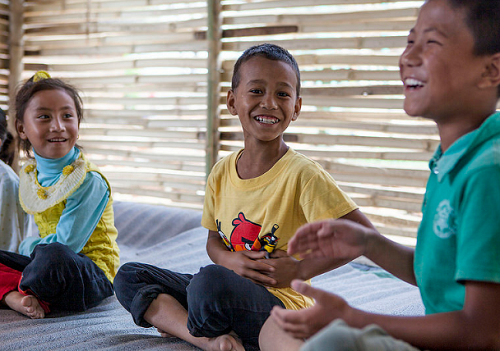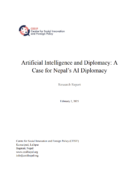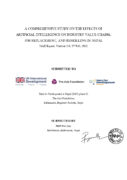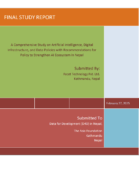
Announcing Open Data Day Nepal 2018, 3rd March, Patan Durbar Square and Museum
February 23, 2018
Data Portal – Nepal Earthquake Data Portal
March 1, 2018Report – Aid Data User Needs and Use Cases in Nepal
Link: Aid Data Needs and Use Cases in Nepal
To inform government and donor initiatives aimed at sharing open data on aid financing, the D4D Program conducted research into the aid data user needs of development actors.
Recent years have seen increasing efforts, both locally in Nepal and internationally, to improve how data and information is shared. This reflects a growing demand for increased production, sharing and use of data to meet development aims, as well as improved transparency and accountability. However, it is not clear to what extent (open) data is being used, by whom and for what purpose, and whether it is meeting the needs of those who could benefit from its use.
In 2017 the D4D Program investigated this issue through conducting a case study on the use of aid financing data in Nepal. The resulting discussion paper aims to assist user-centered approaches to providing data on aid finance and build interest in increased use of data on aid financing among key stakeholder groups.
The study found that many stakeholders share common interests and needs with regard to financial information on aid and that there is a demand for more analytical information, in particular on needs, resources and results of development interventions; aid in relation to development goals; and aid in relation to domestic resources. Despite the increase in availability of aid data from national and international sources and platforms, the study found that in practice stakeholders rely strongly on written reports, organisational websites and their interpersonal networks to access and use the information they need. The study concludes that greater efforts are needed to increase the awareness of aid data availability from systems such as the Government’s Aid Management Platform and the International Aid Transparency Initiative, and that proactive engagement is required with different user groups to translate the sharing of data into decision-making and action. For this, openness of aid data and its interoperability with other sources of official and administrative data is critical.
For more information about this study:




